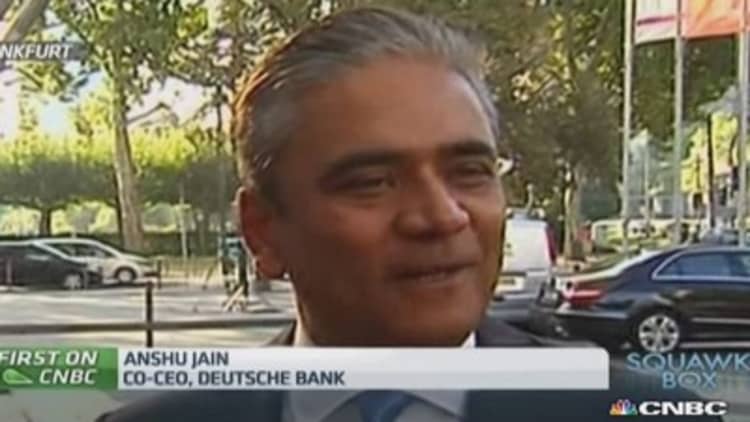Economic growth depends on the productive use of investment and rejuvenation of "capitalistic animal spirits," but that's not taking place now, said Bill Gross, manager of the world's largest bond fund, in his latest investment outlook letter on Wednesday.
"Economic growth depends on the productive use of credit growth, something that is not occurring," said Gross, who manages the $223 billion Pimco Total Return Fund.
Read MorePimco bleeds, but bond king Bill Gross backed
Gross said the U.S. Federal Reserve, the Bank of England and other major central banks are now engaged in an "unmodeled experiment" which involves: "What growth rate of credit is enough to pay prior bills, and what policy rate/amount of quantitative easing is necessary to generate that growth rate?"
Assuming the interest rate on outstanding debt in the U.S. is approximately 4.5 percent, a Fed governor using this template would want credit to expand by at least 4.5 percent per year to prevent the necessary sale of existing assets, including debt and equity, to cover annual interest costs, said Gross, who as Pimco's chief investment officer helped oversee $1.97 trillion in assets as of June 30.
Put simply, if credit needs to grow 4.5 percent per year, the private and public sectors must create approximately $2.5 trillion of additional debt per year to pay for outstanding interest, he said.
Read MoreWhy a rising jobless rate will be good for Yellen
"They are under achieving that target in the U.S., which is the reason why GDP growth struggles at 2 percent real or lower and nominal GDP growth seems capped at 4.5 percent or lower," he said.

"Credit creation is essential for economic growth in a finance-based economy such as ours. Without it, growth stagnates or withers. Its velocity/turnover is critical as well."
Gross said central bankers are hopeful that fiscal policy, which includes deficit spending and/or tax reform, may ultimately lead to higher investment, "but to date there has been little progress."
Read More
"The U.S. and global economy ultimately cannot be safely delivered with artificially low interest rates, unless they lead to higher levels of productive investment," he said.
—By Reuters

